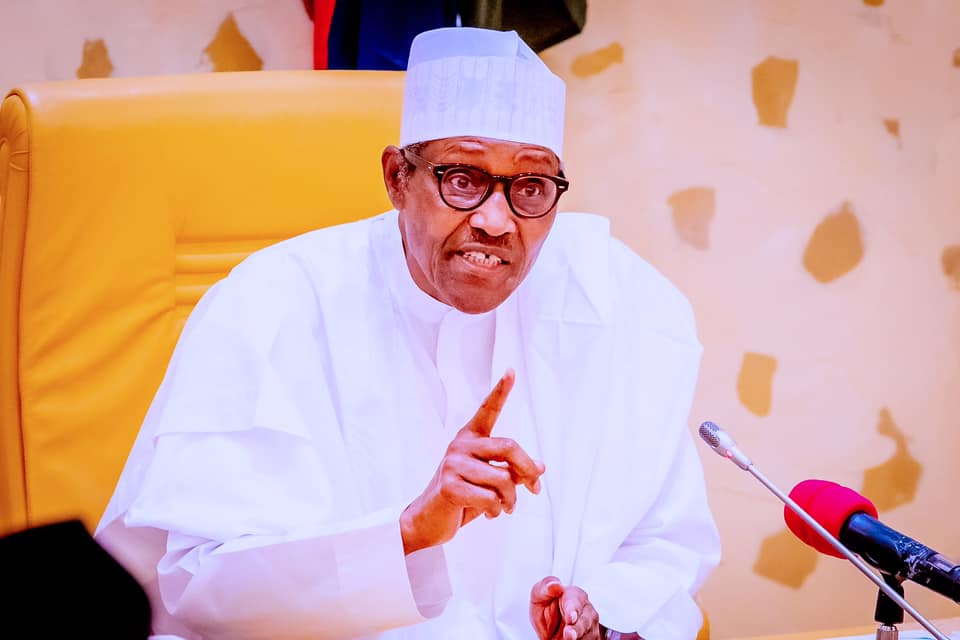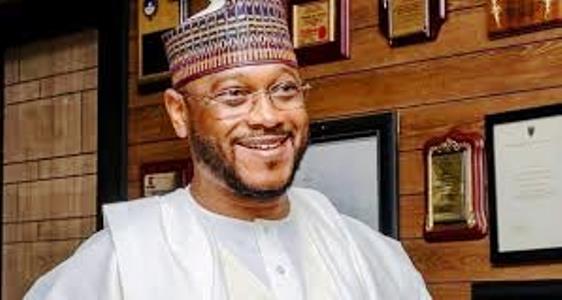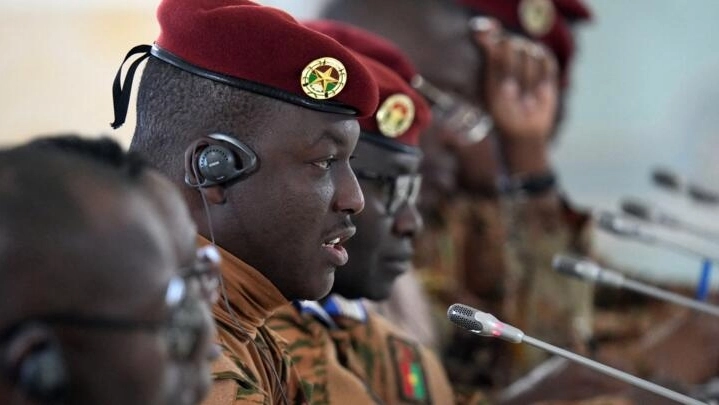President Buhari orders action against artificial increase in food prices

By BASHIR ADEFAKA
President Muhammadu Buhari has finally acted against marketers he describes as middlemen buying off and hoarding food items for profiteering, whose ‘wicked’ and indiscriminate increase of prices make earnings of Nigerians inadequate.

Action by the President was reflected in his Independence Anniversary Address delivered during a nationwide broadcast on Friday October 1, 2021.
He was not comfortable with illogical economic theory that sees food prices going up in the face of increased agricultural efforts and outputs.
“Unfortunately, as our food production capacity has increased, food prices have been going up due to artificial shortages created by middlemen who have been buying and hoarding these essential commodities for profiteering,” he said.
Recall that a former Commander, Nigerian Army Ordnance Corp, Major General Adekunle Abdullahi Martins (Rtd), had called recently on the President and the Federal Government to take the economy upon which other economies depend like that of Lagos to their heart.
General Martins, who said leaving the economy of Lagos in the hands of hoodlums and their sponsors will be counterproductive to the administration’s good work, told the President through an exclusive report published in The DEFENDER that two areas of human life must not be left to mediocres’ control: market system and public transportation.
President Buhari said while continuing to optimise and enhance oil and gas sector, “I am also proud and delighted to state that our economic diversification strategy remains on course with the persistent increase in Non-Oil Sector contribution to GDP.
“We recovered from economic recession in quarter four of 2020 with a GDP growth rate of 0.11%, and grew by 0.51% and 5.01% in real terms in the first and second quarters of 2021.
“The Agricultural sector remains key to our economic diversification efforts as the sector has been a consistent driver of the non-oil sector contributing 22.35% and 23.78% to the overall GDP in the first and second quarter of 2021.
“We have seen significant private sector investments in almost all areas of the agricultural value chain. And these have continued even during the COVID-19 pandemic.”
Unfortunately, as our food production capacity has increased, food prices have been going up due to artificial shortages created by middlemen who have been buying and hoarding these essential commodities for profiteering.
To address the problem of artificial shortages-induced price increase created by middlemen hoarding food items for profiteering, President Buhari said:
“I am hereby directing the Ministry of Agriculture and Rural Development to rehabilitate the National Food Reserve Agency and also work with security agencies, the Nigerian Commodity Exchange, and the National Assembly to find a lasting solution to these disruptive and unpatriotic hoarding activities.
“To further enhance food production, we have completed several new dams and are in the process of rehabilitating several River Basin Development Authorities to enhance ground water supply for rainfed agriculture as well as surface water for irrigation agriculture.
“The water projects we completed between 2015 to 2020 have improved Nigerian’s access to potable water to 71% between 2015 and 2020. This means 12.5 million additional Nigerians now have direct access to potable water,” he explained.
Transportation infrastructure deficit
He continued, “This Government remains concerned by the significant transportation infrastructure deficit we have. Addressing the challenges our commuters and lorry drivers face on the motorways is still a high priority to us.
“To complement our budgetary allocations, the Presidential Infrastructure Development Fund and the Road Infrastructure Development and Refurbishment Investment Tax Credit Scheme, we recently established a N15trillion Infrastructural Corporation of Nigeria Limited (INFRACO), which is expected to begin operation by the fourth quarter of this year.
“INFRACO will also focus on leveraging resources on a public-private sector basis for infrastructural development in Nigeria.
“We hope through these innovative programs, the additional cost burden on individuals and businesses because of inefficient logistics operations will be reduced and ultimately, eliminated.
“We currently have over 13,000 kilometres of roads and bridges under construction all over the country of which a fair percentage have been completed.
“As we fix our roads, we also continue to extend and upgrade Nigeria’s railway network with the notable opening of the Warri- Itakpe standard gauge rail line.
“To increase capacity, we have introduced more locomotives, coaches and wagons including the establishment of a Wagon Assembly in Kajola, Ogun State.
“The sea ports however still remain problematic. The effect of our various interventions to reduce the gridlocks and inefficiencies have been slower than expected.
“However, the implementation of the Electronic Call-Up System as well as the conversion of the Lillypond Container Terminal to a Vehicle Transit Area will further enhance the ease of cargo evacuation.
“Our prioritisation of developing Nigeria’s Digital Economy has positively impacted the contribution of the ICT sector to our GDP.”
NIN, 5G and digital economy
President said, “We hope our present efforts to ensure all Nigerians use a National Identification Number as well as our planned roll-out of the fifth generation (5G) network technology will ensure we stay in line with the global innovation curve as a Nation.
“As we embrace the digital economy in Nigeria, we are fully aware of the prospects and the perils. Our policies have been developed to enable Nigerians to take advantage of the prospects and avoid the perils of digital technologies.
“Social media is a very useful platform that has enabled millions of Nigerians to connect with loved ones, promote their businesses, socialise, and access news and other information.
“However, recent events have shown that the platform is not just an innocuous platform for information dissemination.
Social media and criminalities
“Rather some users have misused the platform to organise, coordinate, and execute criminal activities, propagate fake news, and promote ethnic and religious sentiments.
“To address these negative trends, the Federal Government of Nigeria suspended the operations of Twitter in Nigeria on June 5, 2021 to allow the Government put measures in place to address these challenges.
“Following the suspension of Twitter operations, Twitter Inc. reached out to the Federal Government of Nigeria to resolve the impasse. Subsequently, I constituted a Presidential Committee to engage Twitter to explore the possibility of resolving the issue.
“The Committee, along with its Technical Team, has engaged with Twitter and have addressed a number of key issues. These are:
“a. National Security and Cohesion;
b. Registration, Physical presence and Representation;
c. Fair Taxation;
d. Dispute Resolution; and
e. Local Content.
“Following the extensive engagements, the issues are being addressed and I have directed that the suspension be lifted but only if the conditions are met to allow our citizens continue the use of the platform for business and positive engagements.
“As a country, we are committed to ensuring that digital companies use their platform to enhance the lives of our citizens, respect Nigeria’s sovereignty, cultural values and promote online safety,” the President said.








